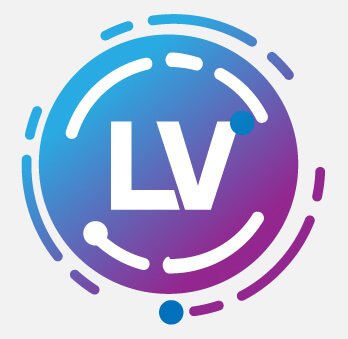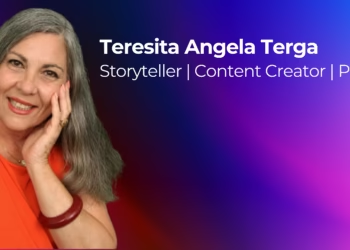
"The more people I can help get into the Web3/NFT/Metaverse/Blockchain space, the bigger and better our ecosystem will become over time"
@Benl324 Tweet
Benjamin is President of Leff Ventures, a fintech consulting company he formed in 2018. he has served as Chief Operating Officer at Sheesha Finance with over ten years of experience leading large-scale marketing efforts and business development programs across multi-year roadmaps. Benjamin began his career in blockchain in 2015 by volunteering as a community manager for many projects. He then worked for several ICOs in a community and social media capacity.
Benjamin has since left ICO consulting and begun working with exchanges. He was a Global Ambassador at Liquid Exchange and a Business Development Manager at Kraken Exchange. Before taking his post as COO of Sheesha Finance, Ben served as the Director of Communications for the Own Your Data Foundation. Benjamin has volunteered for projects such as GIVE Nation and Goldilock Security. In his free time, Benjamin became an early collector of NFTs, selling a portion of his portfolio, 4,387 NFTs, to an NFT Investment Fund.
He has managed business development for Atomic Hub, an NFT marketplace on the WAX blockchain) and high-level partnerships with Tier 1 corporations and influencers. He has held a platitude of Web3 roles and is a believer, builder, and advisor for metaverse projects.
Benjamin recently expanded his practice to advise UHNWIs and Family Offices regarding their cryptocurrency and NFT portfolios. Most recently, he has worked with funds such as Morgan Creek Capital, Exos Capital, and A100X to find synergies within the blockchain investment industry
Would You like a feature Interview?
All Interviews are 100% FREE of Charge
Table of Contents
A Conversation with Benjamin Leff

Benjamin’s passion for blockchain is deeply rooted in his belief in an empowered community. To engage more people in blockchain and cryptocurrency education, Ben served as a co-founder of the Houston Bitcoin Meetup, which had 2800 members and meetings twice monthly for many years. He has been on panels with Jordan Belfort, Alexander Salnikov (co-founder of Rarible), and Mark Yusko of Morgan Creek Capital. He has also been the subject of a Hackernoon article discussing NFTs and his collection, as well as a bulk sale of over 4,000 NFTs to an investment fund. Benjamin held a recurring weekly segment on Ticker News in Australia throughout 2021 and has been the subject of several interviews covering topics from Elon Musk entering the crypto arena to NFTs, Metaverses, and Fundraising.
INTERVIEW
Welcome Ben great to have you on & to find out those pearls of wisdom you have!
Thanks so much for having me; great to be here today!
If you would be so kind as give a brief overview of…
Who you are, who you have worked with, and what Ben Leff is all about?
Absolutely! Ben Leff is all about blockchain! I have worked with projects since before the term “ICO” existed and began working in a community management capacity. My love for blockchain shines through my efforts in driving mass adoption. Whether that is speaking at an event or educating companies and government agencies on the advantages of blockchain technology and how to use it.
I have worked at Kraken Exchange as their Business Development Manager and at Liquid Exchange as a Global Ambassador. My work has led me worldwide, from Dubai to South Africa to Vietnam. I have worked in DeFi, GameFi, MachineFi, the NFT, and Metaverse space, and now I manage the crypto portfolios of family offices and ultra-high net worth investors.
Our readers want to know,
What exactly are NFTs, and how do they impact our society?
NFTs (Non-Fungible Tokens) are a type of digital asset that represents ownership of a unique item or piece of content, such as art, music, videos, or even tweets. Unlike cryptocurrencies like Bitcoin, which are fungible and can be exchanged for other units of the same value, NFTs are unique and cannot be replaced by another token. This allows for the creation of unique digital assets with verifiable ownership and provenance.
The ownership of an NFT is recorded on a blockchain, such as Ethereum, which means that it is public, transparent, and cannot be changed. The blockchain also provides a way to track the history of the NFT, including who created it, who owns it, and any previous transactions involving the NFT.
NFTs have become increasingly popular in recent years, as they allow creators to sell their digital art and other creations directly to buyers, without the need for a middleman like a gallery or auction house.
They have also been used in the world of gaming, where they can represent in-game items or virtual real estate, and in the music industry, where they can represent ownership of digital music files or concert tickets.
One potential impact of NFTs on society is that they could provide a new way for artists, musicians, and other creators to monetize their work, without having to rely on traditional gatekeepers like galleries, record labels, or streaming services.
This could potentially empower a new generation of creators and create new opportunities for people who might not have had access to traditional distribution channels.
What is the connection between NFTs and cryptocurrency anyway?
Well, the connection is that they both use blockchain technology, but in entirely different ways.
Cryptocurrencies like Bitcoin, Ethereum, and many others, are digital currencies that are used as a medium of exchange, a store of value, or a unit of account.
They are fungible, meaning that each unit is interchangeable with another unit of the same value, like physical cash. This makes them useful for transactions and as a store of value, and they are often compared to traditional currencies like the US Dollar or the Euro.
NFTs, on the other hand, are unique digital assets that represent ownership of a particular item or piece of content, like a piece of art, a video game item, or a tweet. They are not fungible, meaning that each NFT is unique and cannot be exchanged for another NFT of the same value. This makes them useful for representing unique items or experiences, and they are often used in the world of art, music, and gaming.
Another key difference between cryptocurrencies and NFTs is their value. Cryptocurrencies like Bitcoin and Ethereum have a market value that is determined by supply and demand, and they can be exchanged for traditional currencies or other cryptocurrencies.
NFTs, on the other hand, have a subjective value that is determined by their rarity, popularity, and perceived cultural or artistic value. This can make them more difficult to value or exchange, and their value can be highly volatile.
While cryptocurrencies and NFTs are digital assets that use blockchain technology, they serve different purposes and have different properties. Cryptocurrencies are fungible digital currencies that can be used as a medium of exchange or store of value. At the same time, NFTs are unique digital assets that represent ownership of a particular item or experience.
Are NFTs the future of art and collectibles?
100%. NFTs transformed the art and collectibles world by storm. NFTs will be the future of things like concert tickets, and special memberships to real-world places like museums. NFTs will also serve as forms of “digital twins” where our life and information can be stored on an NFT, or many NFTs, and that information can be distributed as we see fit, giving data ownership back to the hands of people, not companies.
Are NFT’s connected to the Metaverse?
Indeed it is! I like to think that there is only one Metaverse, just like there is only one Universe with multiple galaxies and planets inside. The Metaverse (in my mind) contains all projects that are building distributed ecosystems on blockchain platforms and incorporating NFTs into their projects, whether it is a game avatar or a tool within a game to virtual land and real estate.
What future careers do you think will emerge in the “Metaverse” / Web 3.0?
We will see many more “people-based” careers, in my opinion; positions in areas such as: Community, Social Media, Content Production, and Marketing. The Metaverse, and all projects categorizing themselves as such, along with Web3 projects are becoming more including of people and making their community a significant part of their project, sometimes even leaving major decision-making to community members by way of voting (sometimes even voting with NFTs).
How many NFT’s do you personally own?
I stopped counting after I sold 4,387 of them to an NFT investment fund. But if I had to guess, I would speculate it is down to around 200 or less. I have become very selective of the NFTs I own based on my experience collecting thousands of them over the years.
Our readers love insights…Lets’ talk more on NFT’s
Do you have your NFT project?
I do not have my own NFT project, as I spend so much time advising people about their NFT projects. It all goes back to my ethos of driving mass adoption. I believe this is done through the education and empowerment of people and communities. The more people I can help get into the Web3/NFT/Metaverse/Blockchain space, the bigger and better our ecosystem will become over time.
Author
-

Russ Turner
Founder & Editor at GallantCEO.com | Media enquiries, Guest Posting, and Interviews please contact via LinkedIn.
"Elevate Your Brand with an Exclusive Feature Interview!"


























